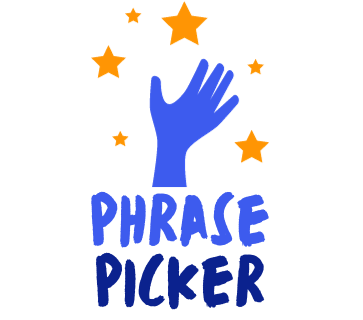Introduction
In the landscape of linguistic expressions, the phrase ‘as you know’ holds a notable position. Whether in casual e-correspondence, strident debates, relaxed dialogue, or narratives, this phrase subtly surfaces more often than we might realize. Yet, how many of us grasp its full spectrum of use, connotations and potential substitutes? In this article, we take a close scrutinization at ‘as you know’, its application, and provide numerous alternatives for more varied and colorful conversation.
Key Takeaways
- The phrase “as you know” is often used to preface information that the speaker believes the listener is already aware of. It can set the tone for a conversation and serve as a polite way to provide context or remind the listener of relevant facts.
- While “as you know” can be useful, overuse can come across as presumptive or condescending. It’s important to use it sparingly and appropriately, ensuring that the context indeed warrants its use and that it doesn’t undermine the listener’s knowledge or experiences.
- There are alternatives to this phrase that can be used to avoid repetitiveness or to better suit the situation. These include: as you might be aware, as you may recall, as we’ve discussed before, or simply remember followed by the information you want to convey.
Other Ways to Say “as you know”
- As we all know
- As you’re aware
- As has been noted
- As you may be aware
- As it’s known to all
- As we have seen
- As you might know
- As evidenced by
- As it’s been observed
- Given the fact
- As we learned before
- As you may recall
- Considering the fact
- As has been previously said
- As most of us know
‘As You May Be Aware’
The phrase ‘As you may be aware‘ is a more formal variant of ‘as you know‘. This expression can be used in official reports, professional emails, and formal conversations. One may choose ‘As you may be aware‘ over ‘as you know‘ to convey politeness and respect for the other party’s knowledge. It naturally implies that the information being shared might not be new to the listener, but is bring mentioned anyway for the sake of clarity or emphasis. For instance, ‘As you may be aware, our company is due for an annual audit next month’ or ‘As you may be aware, Dr. Thompson has recently published a new research paper.’
Dear Sir/Madam,
I hope this email finds you well. In light of your familiarity with the project discussed at our last meeting, I am reaching out to further discuss progress and potential next steps. We believe your insights could help us greatly with the decisions we wish to make moving forward.
Looking forward to our conversation.
Kind regards,
Your Name
How To Answer Formal
The use of the phrase as you know in formal discussions adds a sense of shared understanding or common knowledge. It can also convey respect for the knowledge of the individual. For instance, in a business meeting, one might say, “As you know, our company has always prioritized customer satisfaction. Hence, our new marketing strategy. This applies the phrase in a context where the information being shared is presumed to be familiar to the listener or reader. Another example could be, “As you know, the financial quarter ends next week, so we need to finalize the reports.
In lieu of saying as you know, numerous formal alternatives can also be used. The phrases ‘I believe you’re aware’, ‘Given that you understand’ or ‘Considering your familiarity with’ can serve similar functions while diversifying the vocabulary in a statement. For example, you might say ‘Given that you understand the budget constraints, we’re focusing on cost-effective solutions.’ or ‘Considering your familiarity with the topic, I don’t need to elaborate on the details.’
- I know you’re fully aware of the case, so let’s proceed further.
- Knowing your acumen, I believe detailing won’t be necessary.
- Given the facts you’re well-versed with, let’s skip the preamble.
- Considering our mutual understanding, let’s jump straight to the subject matter.
Dear John,
I hope this email finds you well. I want to acknowledge the point you made, ‘as you know’. I agree with your perspective completely. In fact, I believe that the detailed knowledge you possess has always been vital to our team’s success.
Regards,
Your Name
‘You’re aware’
One informal variant of the phrase ‘as you know’ could be ‘you’re aware’. This phrase can be employed in casual conversation to remind a person about something they know or should know, for instance, ‘You’re aware, we have a meeting at noon.’ It resonates a camaraderie-based and more relaxed tone, often suitable when interacting with peers, friends, or co-workers. It might be favoured over its formal counterpart when the conversation is less formal, more spontaneous, or the situation demands an easygoing approach.
Dear Reader,
Just wanted to touch base with you about the latest updates on our project. You’re probably aware that we have made significant progress in the last few weeks. We have everything on track and are optimistic about meeting the upcoming deadlines.
Best,
Your Name
How To Answer Informally
As you know, is a phrase commonly used in both formal and informal conversations to remind the listener of a known fact or to subtly introduce new information. When answering this phrase informally, it’s important to remember that this is not a bone of contention but an invitation for you to confirm or give your input. For instance, if one says, As you know, the game last night was interesting, an informal response could be, Yeah, it was a thrill. I can’t remember the last time I was that enthralled.
In other scenarios, the phrase could be used to subtly introduce new information, such as As you know, we’ve been tight on the budget this month. In such a context, an informal response could be, Yeah, been a rough ride. Wonder where all the money went! The context of use, therefore, dictates the tone of response. The key is to keep the conversation going, engage with the speaker effectively and keep it light and relatable.
- Yeah, I remember, it was intense!
- Sure, tell me about it.
- No kidding, totally agree with you.
- Absolutely, can’t argue with that.
- No doubt about that, it was a blast.
Hi there!
I appreciate your message and ‘as you know’, I am always ready to help in any way I can.
Best,
[Your name]
Is It Correct to Say “as you know”?
The phrase ‘as you know’ is very much correct and commonly used in both written and spoken English. The question is not so much around its correctness, but rather its appropriateness. The phrase can take on different tones depending on the context it is employed in, and how the receiver perceives it.
Viewing from a strictly grammatical lens, the construction of the phrase ‘as you know’ is sound and there is nothing inherently disrespectful or impolite about it. However, if used frequently or inappropriately, it has the potential to sound condescending or dismissive of the listener’s knowledge. It is crucial, therefore, to gauge the receiver’s familiarity with the subject matter before using this phrase.
Overall, the phrase ‘as you know’ can be polite, general or even rude depending on its use. It’s always a good rule of thumb to remain mindful of the context in which you’re using it and the listeners’ potential perception of it.
In conclusion, it’s hoped that through this exploration into the phrase ‘as you know’, we have provided insights into its varied potential interpretations, thereby helping you to utilize it more effectively in the future.



